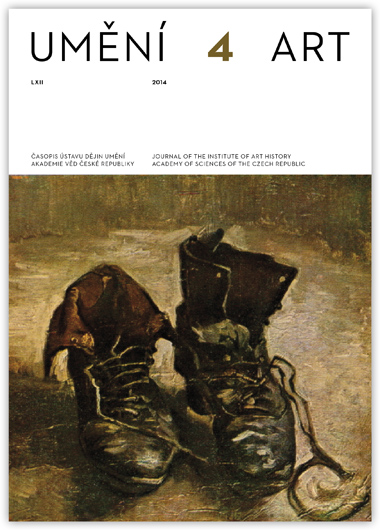Karel Srp
Jan Mukařovský a Josef Král: posudky na Karla Teigeho
The archive of Charles University in Prague has in its collection two written evaluations, never before published, one by Jan Mukařovský and the other by Josef Král, that date from early 1946 and relate to two pieces of written work by Karel Teige, a principal theorist of the Czech interwar avant-garde. One of the works evaluated is Teige’s book Jarmark umění (The Art Fair, 1936) and the other is the study ‘Jan Zrzavý – předchůdce’ (Jan Zrzavý – Forerunner, 1941). In response to a direct request from Mukařovský Teige was trying to complete his doctorate in order to secure his position at the university. He never completed the process, which took place in the first half of the year 1946, because he did not apply to sit the final exam. It is likely that he preferred to retain his independence and refused to submit to the university’s restrictive academic code. The evaluation by literary and aesthetic theorist Jan Mukařovský provides insight into his relationship with Teige, who, though nine years his junior, Mukařovský held in great regard as a pioneer of new artistic ideas and whom he cited frequently in his own work. Mukařovský and Teige both published their seminal works in 1936 (Teige’s Jarmark umění, Mukařovský’s Estetická funkce, norma a hodnota jako sociální fakty / Aesthetic Function, Norm, and Value as Social Facts), in which they each from a different perspective deal with the relationship between the artist, the work of art, and the social foundations from which a work arises. From the second half of the 1930s to the end of the 1940s they were very close friends and they shared an interest in modern art (Jan Zrzavý, Josef Šíma, Jindřich Štyrský, and Toyen), architecture, and the work of F. X. Šalda. Between the two world wars, sociology drew interest from the left-wing avant-garde but it also attracted the attention of the author of the second evaluation, philosopher Josef Král, who espoused rather the ideas of T. G. Masaryk and was critical of Marxist methods. He refused to relate and reduce the freedom of an artist to just market mechanisms. Although Král’s opinions were opposite to Teige’s, he nonetheless recommended him for habilitation. Amidst the rapidly changing political conditions in 1948, however, Teige’s further engagement at Charles University became an impossibility.
Full-text in the Digital Library of the Czech Academy of Sciences:
https://kramerius.lib.cas.cz/uuid/uuid:9153a595-7949-412d-84e3-fc9ff17b4f44
< back

